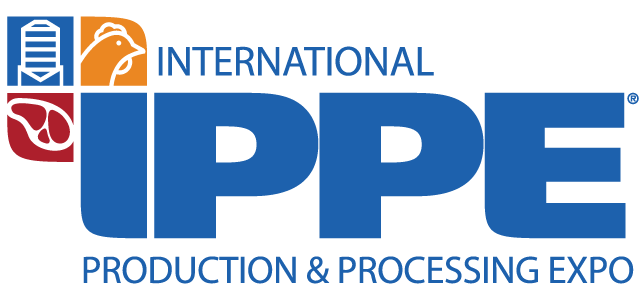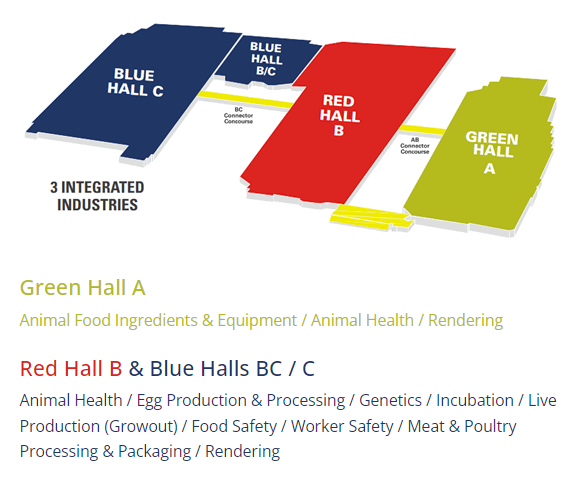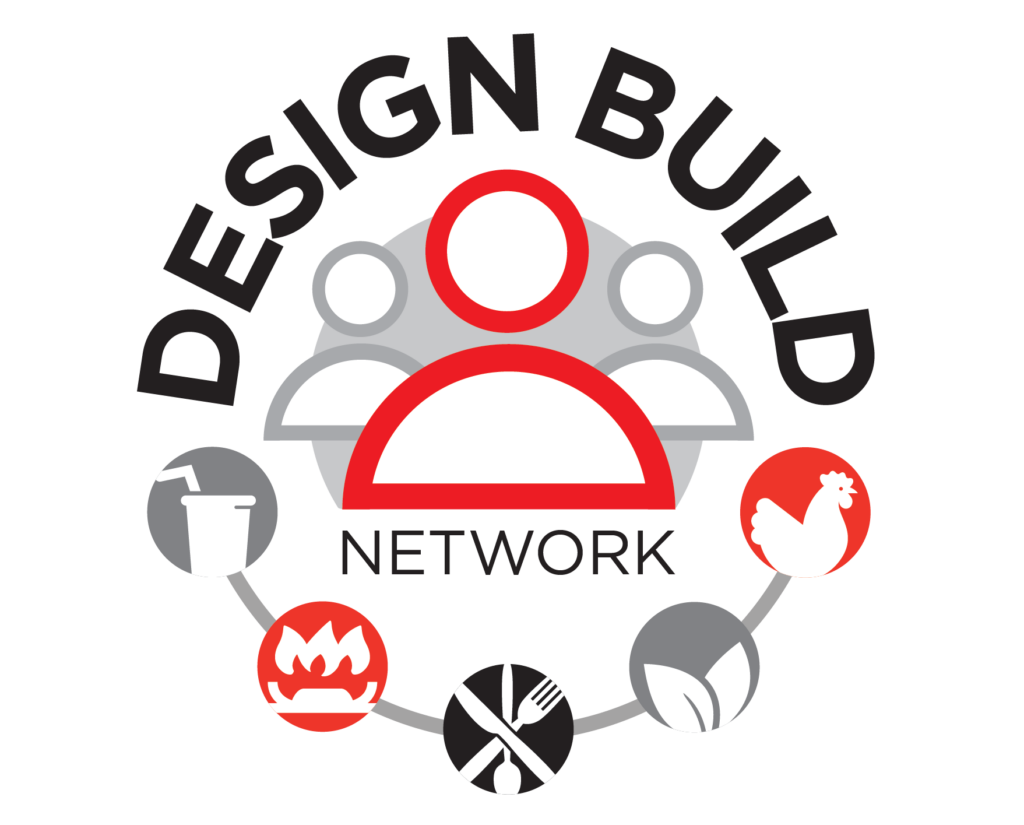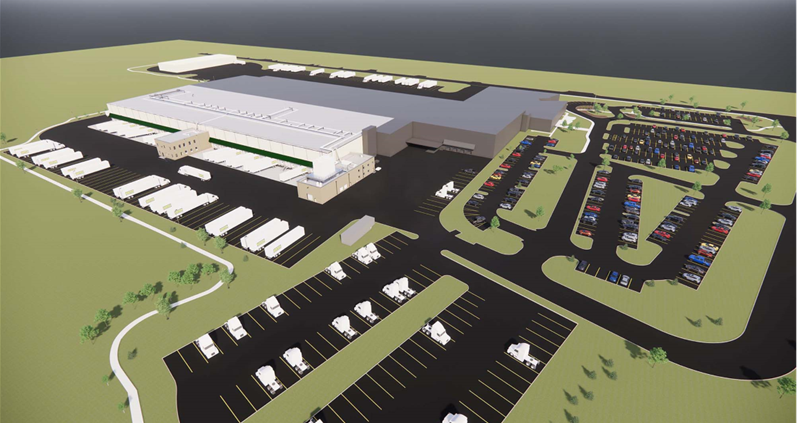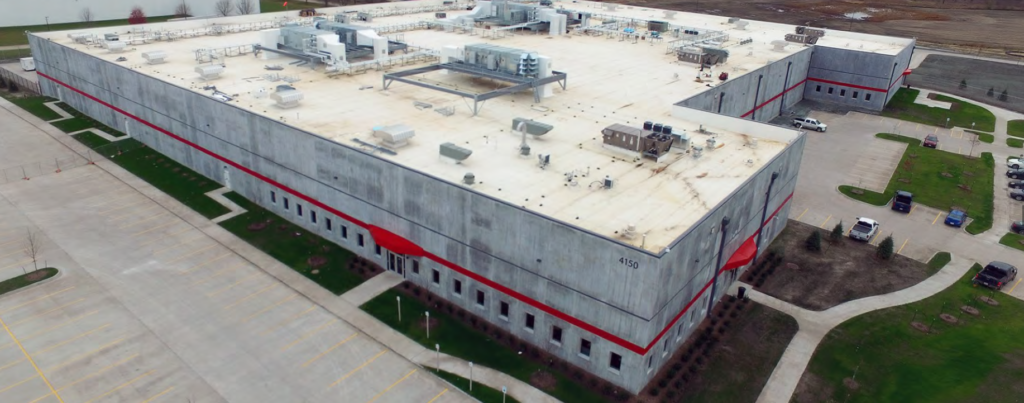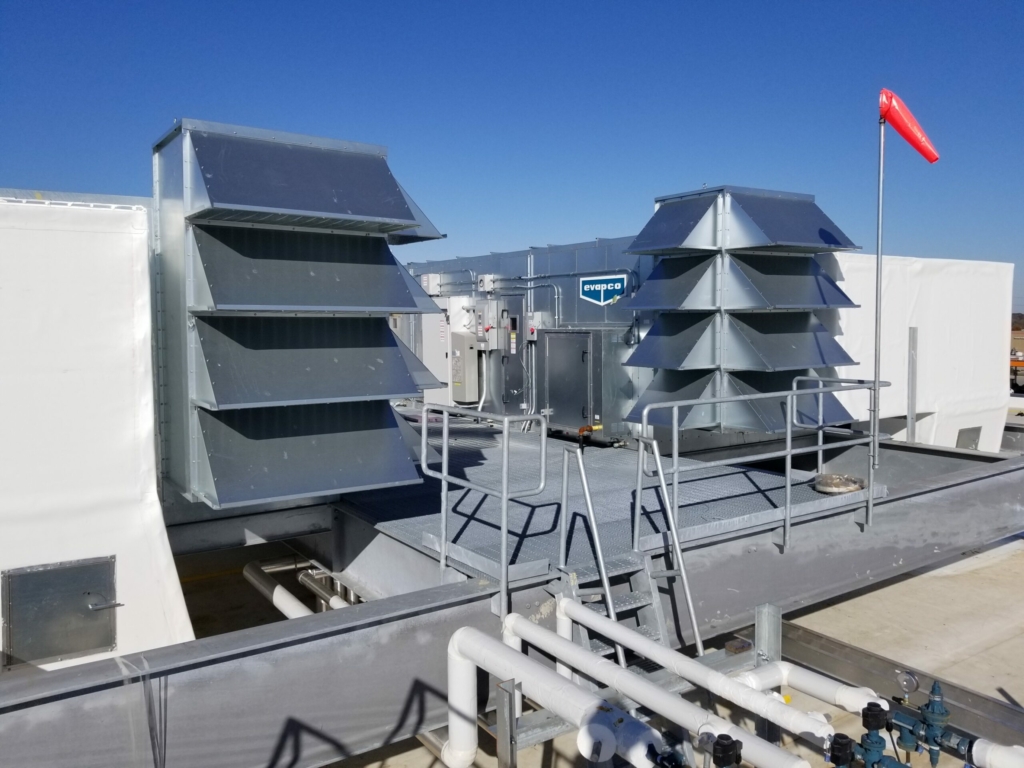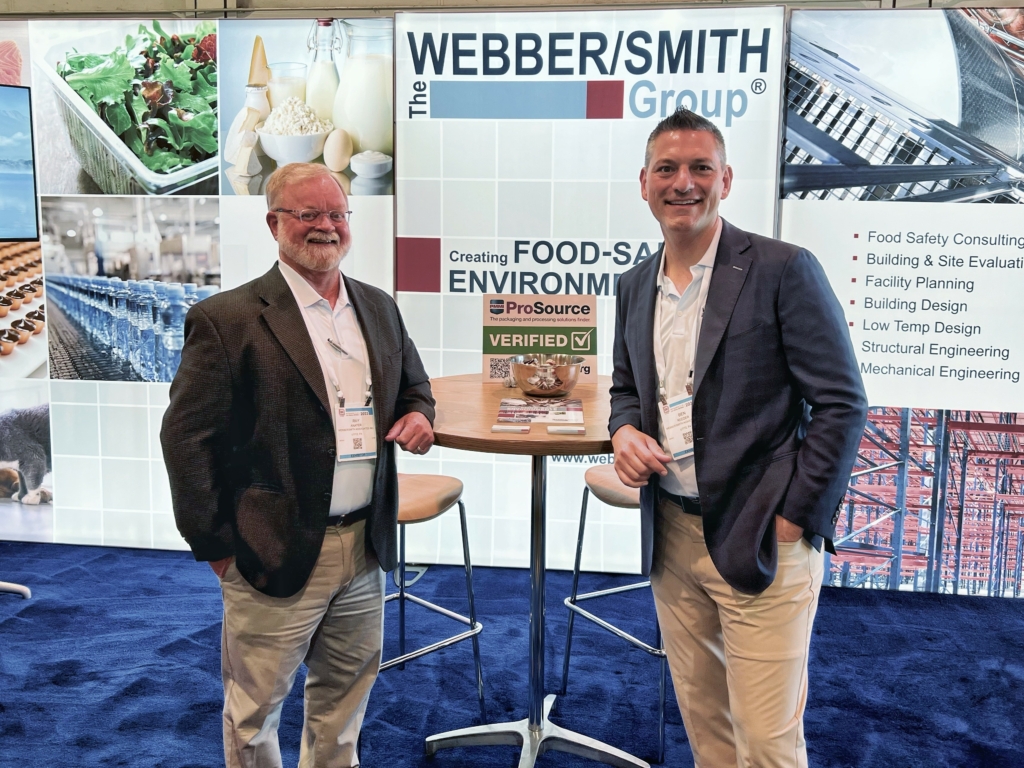In the discipline of structural engineering, especially in the food and beverage manufacturing industry, collaboration is essential. At WEBBER/SMITH Associates, Inc., we pride ourselves on our ability to integrate various engineering disciplines to create structures that are not only robust and compliant but also tailored to the unique needs of our clients. This collaborative approach is crucial in navigating the complexities of modern structural engineering.
Collaborative Dynamics in Structural Engineering
Structural engineering is a field that requires meticulous attention to detail. In the food and beverage sector, this is compounded by stringent regulatory requirements and specific client needs. Rich Thibeault, Manager of the Structural Engineering Department at WEBBER/SMITH, highlights the importance of this integration, stating, “Working closely with other disciplines ensures compliance with building codes and aligns with the specific needs of MEP systems.”
This statement underscores the essence of our collaborative approach. Structural engineering cannot operate in isolation. It requires a symphony of expertise, where mechanical, electrical, plumbing, and architectural disciplines come together to create a harmonious and efficient structure.
Incorporating Unique Structural Challenges
In the food and beverage processing and distribution industry, there are unique challenges with structural engineering. Our Structural Engineering professionals are adept at low and medium temperature building design, understanding the nuances of expansion/contraction, temperature gradients, and the impact of different room temperatures on structural components. We consider factors such as seismic zone requirements, wind shear, and snow load in our designs, ensuring durability and compliance.
Integrating Disciplines for Comprehensive Solutions
At WEBBER/SMITH, we understand that integrating various engineering disciplines is crucial for the success of any project. For instance, in most food processing plants, the placement of heavy equipment, the need for temperature control, and the routing of electrical and plumbing systems all have implications on the structural design. The coordination between the structural team and other engineering disciplines ensures that these factors are considered from the outset, leading to a more streamlined and effective design process.
Navigating Complex Building Codes and Client Needs
One of the most challenging aspects of structural engineering in the food and beverage industry is navigating the complex web of state-specific building codes. Thibeault notes, “Each state has its own licensing and building code requirements. Our job is to ensure compliance across these diverse regulations.” This is where the collaborative spirit of WEBBER/SMITH shines. By bringing together experts from various fields, we can tackle these complexities more effectively, ensuring that our designs not only comply with the codes but also align with our clients’ operational needs.
Addressing Specific Design Requirements
Many of our clients have washdown chemicals that we need to consider when selecting structural components and designing production platforms. Our designs incorporate chemical resistance, where needed, and smooth, washable surfaces in food-safe production spaces. We also specialize in handling unique structural design loads, including walk-on ceilings, conveyors, process and utility piping, as well as vibrating and shaking equipment.
The Role of Technology in Enhancing Collaboration
Advancements in technology have significantly enhanced our ability to collaborate effectively. Thibeault mentions the adoption of new software like RISA, which allows for more sophisticated structural analysis and design. Additionally, the integration of Building Information Modeling (BIM) systems has revolutionized how different engineering disciplines collaborate, allowing for a more cohesive and integrated design process.
Enhanced Structural Options for Food Plant Engineering
Incorporating insights from Food Plant Engineering, we recognize the variety of structural framing and equipment support options available for operations. The optimal choice depends on factors such as the type of food processing or storage, sanitation requirements, building size and height, and equipment locations. Options like conventional framing, concrete pre-cast, box-inside-box, rigid frame, platforms, and foundations each offer unique advantages and must be carefully considered in the design process. This further emphasizes the need for a collaborative approach, as each option impacts various aspects of the facility’s design and functionality.
The Future of Collaborative Structural Engineering at WEBBER/SMITH
Looking ahead, the importance of collaboration in structural engineering will only continue to grow. As the food and beverage industry evolves, with new processing technologies and changing regulatory landscapes, the need for cohesive and integrated engineering solutions becomes even more critical.
At WEBBER/SMITH, we are committed to staying at the forefront of this evolution. Our collaborative approach, combined with our deep expertise in the food and beverage sector, positions us uniquely to meet the challenges of the future. As Thibeault aptly puts it, “Our goal is to not just meet the current standards but to anticipate and be ready for future developments in the industry.”

